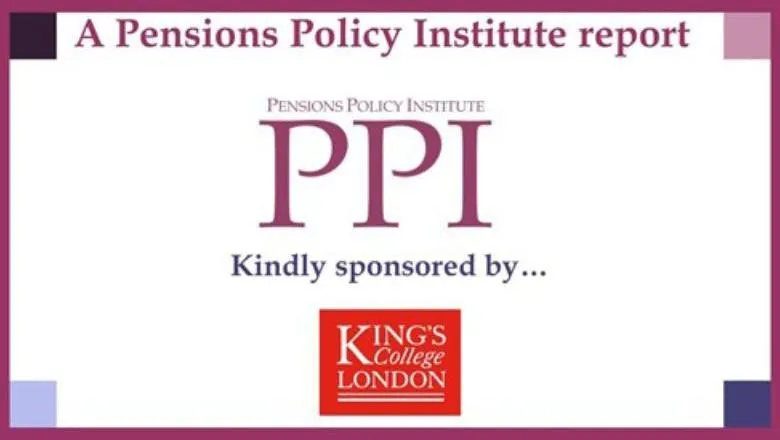The report looks to examine university pensions.

A report discussed yesterday at the event led by the Pensions Policy Institute (PPI) looks to examine university pensions, particularly those provided by the Universities Superannuation Scheme (USS), which have been the subject of much debate and controversy for some years.
The authors of the report set out to answer three questions:
- How did we arrive at this position regarding university pensions?
- What can be done to improve the situation?
- How can we ensure the same situation does not arise again?
King's sponsored the PPI to undertake this independent research and analysis. This independent report examines the issue from the perspective of the members of the pension scheme and explores what different pension structures would mean for the membership. It also explores the needs of different segments of university staff with a particular focus on Equality, Diversity and Inclusion (EDI) issues.
The main findings include:
- Some groups have felt the impact of the changes more than others - a shift from final salary to career average is more detrimental to women (and men) who reach more senior positions (and higher pay) later in their career, while younger staff will lose out more than older staff through all of the changes due to the longer time that they will accrue lower benefits.
- Tiered contributions could make the current benefit structure somewhat more affordable for those on lower incomes but could increase contributions for other members.
- Determining what can be done to improve the situation has no simple answer and is a question of trade-off, essentially between adequacy of pension and affordability/sustainability.
- Further debate is required to establish how important different values are to different groups of members and non-members and a debate about the balance of importance between affordability (for members and employers) and retirement outcomes.
- While a solution to the problems facing university pensions and staff are complex, a solution that works to provide the right balance should be possible. Restoring trust and confidence may take longer but is worth working towards by all parties.
I welcome the attention and insights that this report has brought to these incredibly important and complex issues. In particular, it has reflected on the equalities issues that our staff and those across the sector have raised. I hope it will prove a useful, evidence-based piece of research to inform national discussions where future decisions will be made.– Professor Rachel Mills, Senior Vice President (Academic)
View the full report by the Pensions Policy Institute.






